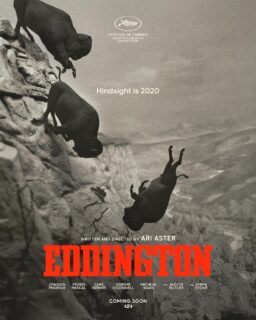PARK CITY, Utah – Since 1968, the MPAA Code and Ratings Administration has been an anonymous group enforcing secret guidelines on almost all movies seeking release in America. The difference between its R and NC-17 ratings can mean life or death for a movie. A rating can be appealed — to another anonymous group, also with guidelines that are never made clear. The board’s founder and great defender, Jack Valenti, explained for years that the movie raters were “ordinary parents” with young children, trying to advise other parents on how appropriate movies might be for younger viewers.
That mysterious cloak of secrecy was ripped asunder (to use Valenti’s beloved hyperbole) here at Sundance Wednesday night, with the premiere of Kirby Dick’s new documentary “This Film Is Not Yet Rated,” a devastating attack on the MPAA’s ratings and how they are administered. Yes, it’s one-sided, especially in the way Dick sidesteps a good point that Valenti makes: The national ratings system headed off the threat of countless local censor boards. But the system penalizes many non-pornographic but adult-themed movies, and is administrated inconsistently behind a bewildering smokescreen.
In the film, Dick hires a doughty private eye, a middle-aged women with a van, a pair of binoculars and a niece to write down license plates, and they successfully discover the names of all the movie raters; interestingly, only a few have young children, many have children in their 20s and 30s, and one has no children at all.
They get a couple of former raters to talk, and even interview Richard D. Heffner, a former head of the board. The bottom line is not much of a surprise: The board is much more lenient towards violence than toward sex, won’t suggest helpful edits to indie filmmakers but supplies suggestions to studio films, and has an interesting voting system: If there’s a tie vote of the eight-member board, the chairman casts the deciding vote, which means he gets to vote twice.
Dep’t. of Rich Irony: The Los Angeles Times reports that the MPAA obtained a copy of Dick’s film and made DVD copies of it for internal scrutiny. That of course would be precisely the kind of bootleg piracy the MPAA is waging war against.
* * *
One of the strongest and most touching films in the competition is “Quinceanera,” by Wash Westmoreland and Richard Glatzer. It tells the story of a 15-year-old Mexican-American girl in the Echo Park district of Los Angeles. Like the wonderful 2002 film “Real Women Have Curves,” it’s about a generation gap between parents and children, about the challenge of being in love and remaining a virgin, and about an extended circle of family and friends. There is rich human comedy here, and sadness, and a portrait so textured that we get very involved.
Emily Rios stars as Magdalena, whose 15th birthday milestone is approaching, and who knows her father isn’t rich but hopes she can have a Hummer stretch limo like her best friend for her own quinceanera (a traditional celebration of a Latina’s 15th birthday). Then she becomes pregnant while technically still a virgin (“My sperm sure can swim,” her boyfriend observes ruefully). Her father banishes her from the family home, and she finds refuge with her great-grandfather, played by Chalo Gonzalez with such warmth and wisdom that this is surely one of the best performances of the year. The story also involves her cousin (Jesse Garcia), who gets involved with the yuppie gays who are their landlords. Life lessons are learned in a film that is serious, joyful, and filled with heart.
* * *
Tilda Swinton and Amber Tamblyn share scenes of painful personal revelation in Hilary Brougher’s “Stephanie Daley,” which is also about a pregnant teenager. Tamblyn’s character, whose pregnancy is a secret, partly even from herself, gives birth in a rest room and when the baby is found dead and discarded, she is charged with a crime.
Swinton plays the psychologist assigned by the prosecution to interview the girl. This process is fraught with emotion because the older woman recently went through a stillbirth and now is pregnant again. As the two women talk, flashbacks show the complexities of their experiences with pregnancy.
The film avoids the conventional moves of a Q&A investigation to show both women somehow sharing their emotions. “There’s a kind of a conspiracy among women to conceal how painful and difficult pregnancy can be,” Swinton, the mother of two, said after the screening. The film avoids a simple criminal solution to the death of the teenager’s baby, and involves instead the deepest feelings both women have about the lives within them.
* * *
The Darwin Awards began as a web site, became a book and have now become a movie. The awards were inspired by the theory that some people die in such idiotic ways that their passing may be a benefit to the gene pool. Finn Taylor’s comedy stars Winona Ryder as an insurance investigator who is told by a neurotic former police detective (Joseph Fiennes) that his brilliance at creating victim profiles can help the insurance company single out likely candidates for stupid accidental deaths.
The film intercuts their investigations with scenes based on famous Darwin award winners; the funniest and most gruesome involves a couple of stoners who try to sneak into a Metallica concert and end up in a catastrophe so unlikely that a kind of insane logic informs it. The movie doesn’t have much of a through-line, and the investigators mostly exist as segues between horrible accidental deaths, but there is a certain gruesome fascination to the episodes.












